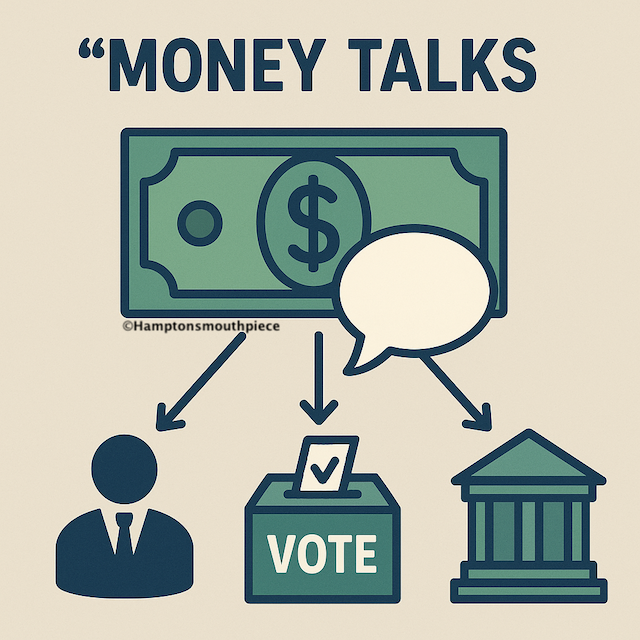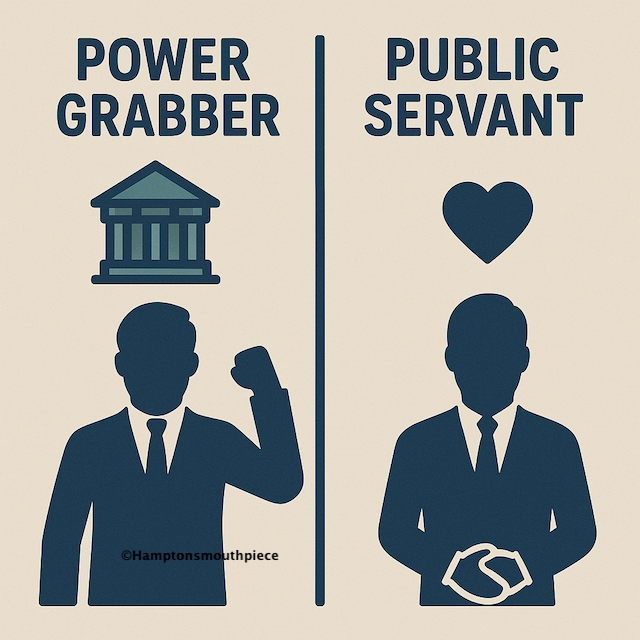Is It More Addictive Than Doing the Right Thing?
The Power That Comes with Being a Politician; Is It More Addictive Than Doing the Right Thing?
When Power Becomes the Goal, Politics, at its best, is public service.
A politician is meant to be a protector and an advocate—someone the people trust to speak for them, fight for them, and protect their interests.
To hold office is to hold a sacred responsibility; you are in a position to make change for the good of the people; but somewhere between intention and reality, things often go off course.
So we have to ask:
Is power so intoxicating that it overrides doing what’s right?
Power vs. Purpose
Most leaders begin with a mission. They want to bring change, address injustice, and uplift their communities. But power—especially in the political arena—isn’t neutral. It flatters. It elevates. It rewards loyalty, not always integrity.
What starts as purpose can slowly shift into performance.
Power doesn’t always corrupt—sometimes it seduces. If you really want to know what drives a politician’s choices, just follow the money.
• Campaign donations
• Lobbyist pressure
• Political favors
• Hidden backroom deals
Money has the power to distort good intentions. It silences dissent and keeps the power-hungry clinging to their positions—not for the people, but for personal gain.

The Shift: When Power Feeds on Itself
There’s a moment when power stops being a tool and starts becoming the goal.
That’s when it becomes dangerous.
Does power start to feed upon itself?
Absolutely, and from there, fraud, manipulation, and corruption can take root.
Suddenly, politicians aren’t working for the people—they’re working to protect the system that protects them.
They’ll say anything. Do anything. Spin any narrative to stay in the spotlight.
Would You Do Anything to Keep It? This is the heart of the issue.
Is power so addictive that a politician would:
• Ignore the truth?
• Silence whistleblowers?
• Mislead constituents?
• Stay in office even when it’s no longer in the public’s best interest?
Too often, yes.
Even when stepping down would be the right and honorable move, too many hold on tightly. Not out of service, but out of fear of what they’ll lose.
“The longer one clings to power, the less they serve the people and the more they serve themselves.”
Doing the Right Thing Isn’t Always Rewarded
In politics, doing the right thing rarely makes headlines.
It might cost you your popularity, your party’s support—even your job.
But doing the right thing—especially when no one is watching—is the definition of real leadership.
“Legacy isn’t about how long you stay in power. It’s about how you used it.”
What is our Role: what do we reward? We, the public, are part of this equation. Are we voting for real change—or just charisma and clickbait?
If we want better leaders, we have to:
• Ask better questions
• Demand transparency
• Reward courage over comfort

When Power Is No Longer About People
A politician’s role is to serve—not rule.
To protect—not manipulate.
To uplift—not enrich themselves.
But when power becomes a shield instead of a service, democracy suffers.
So, the question remains: When does the pursuit of power become a betrayal of purpose?
And if that moment comes—will they do the right thing, or anything to stay in office?
If the answer ever stops being the people—it’s time to go.
Call to Action
Let’s demand leaders who lead with integrity—not ego.
📢 Share this if you’re ready for politics that serves people, not power.



Comments are closed.